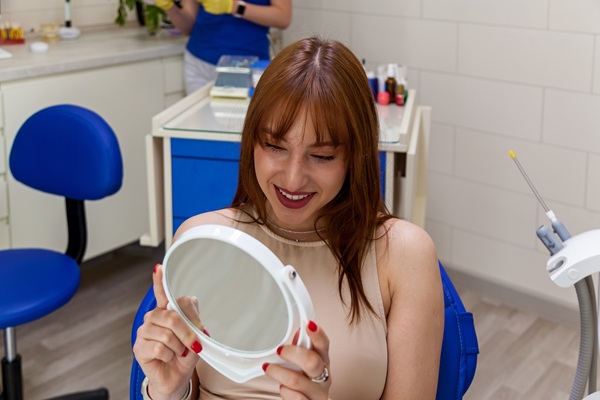Aftercare Tips for Root Canal Therapy
p>

Patients typically do not feel much discomfort during root canal therapy, but there is likely to be discomfort during the recovery process. It is helpful to become familiar with the likely symptoms following root canal therapy and plan in advance on how to make a full recovery in the shortest amount of time possible.
How to recover after a root canal
There are certain care tips that dentists recommend to patients after root canal therapy. The most common issues patients experience include gum swelling and tenderness, difficulty chewing and an increased risk of infection. The following are four tips for how to deal with the uncomfortable symptoms and make the aftercare process easier.
Practice good oral hygiene
Good oral hygiene is an essential step in the root canal therapy aftercare process. This is primarily to ensure there are no issues with the root canal and that the risk of an oral infection following treatment is kept to a minimal level. Good oral hygiene keeps bacteria and food particles away and can also reduce the amount of discomfort the patient experiences. Dentists typically recommend brushing several times each day, flossing regularly and using mouthwash to keep the mouth clean after a root canal procedure.
Eat a soft and low-sugar diet
Another important aftercare tip for root canal therapy is watching what you eat and drink. Certain foods and drinks may increase the risk of complications after a root canal, such as those that are high in sugar, carbohydrates, hard foods and sticky candy. Instead, dentists typically recommend consuming a low-sugar diet of soft foods. Chewing will be more difficult after root canal therapy, so it is important to minimize the risk of irritation by eating an appropriate diet of soft foods and primarily drinking water and milk.
Reduce the risk of dental trauma
Dental trauma can significantly set back the recovery progress of root canal therapy. Dental trauma refers to damage to the mouth, which is typically caused by a blow to the face or teeth grinding. It is encouraged to avoid activities in which a blow to the face is possible, such as contact sports, weightlifting and heavy construction. Patients who grind their teeth at night should wear a mouthguard to prevent teeth grinding.
Check for signs of complications
The dentist will likely require follow-up visits. In addition to ensuring all follow-up visits are made, patients should also check for signs of complications, such as increased pain or a loosening or loss of a temporary crown. If notable issues develop, be sure to contact the dentist for prompt and effective treatment after a root canal.
Learn more about root canal therapy aftercare
Here at our dentistry, we take pride in helping patients through the root canal process from the consultation visit to assisting with aftercare once treatment is complete. Our team is friendly and more than happy to answer any questions you may have about root canal therapy or how to make a quick and full recovery.
Request an appointment here: http://www.riversdentistry.com or call Rivers Family Dentistry at (979) 710-2216 for an appointment in our Bryan office.
Check out what others are saying about our dental services on Yelp: Root Canal in Bryan, TX.
Related Posts
When you think about a root canal, you may have thoughts of pain, discomfort, and a generally unpleasant experience. Of all the dental procedures, this one has one of the most infamous reputations. However, your dentist has the training, knowledge, and tools to correct significant decay and restore your oral health. To diagnose a tooth…
A person may need a root canal to clean out the inside of their tooth and remove infection. However, not all infections present symptoms, and if they do, different people may experience them differently. For this reason, understanding whether you need a root canal can become tricky.While no two people are entirely alike, most will…
Curious about the root canal process? This review discusses the specifics of what you can expect when visiting a dentist for root canal treatment. Read on to learn more about this type of restorative treatment.Every dentist has their own process for root canal treatment, but there is a general process that most follow with patients.…
Dentists use root canals to save teeth that are badly infected. Sometimes, due to damage or decay, the inner part of the tooth becomes infected. However, the tooth may not have to be pulled, thanks to the root canal procedure. This article takes a closer look at this common treatment and three main signs you…


